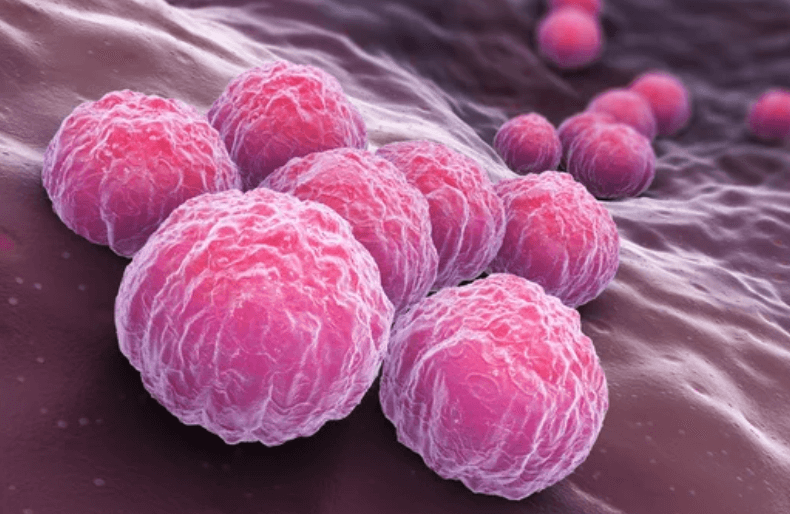Chlamydia is one of the most prevalent sexually transmitted diseases in people under the age of 25. But it’s also one of those ones that you don’t really hear about a lot of people having. So what is Chlamydia?
Unlike HIV which can be devastating, or HPV and herpes which can be painful, chlamydia often flies under the radar until it’s too late.

Symptoms
It’s not unusual for chlamydia to be completely asymptomatic in both men and women. This is part of what makes this disease so scary– how can you treat something if you’re not even sure that you have it? It’s very important to get tested regularly to be sure.
Women who are experiencing symptoms most commonly report discharge. Since discharge is a common part of any woman’s natural cycle, it’s important to look for changes in your discharge. Is it a different color than a healthy white or off white? Is it thicker than normal?
Is it accompanied by other symptoms, like abdominal pain, burning during urination, or painful sexual intercourse? If so, there’s a good chance that it’s chlamydia. If flu-like symptoms occur, like fever, nausea, or even bleeding in between periods, the chlamydia could have spread to the fallopian tubes, which needs to be treated immediately before it causes infertility.
For men, a tell-tale symptom is pain in the testicles, although they can also have discharge, burning during urination, abdominal pain, and painful sexual intercourse.
Both men and women can get chlamydia of the rectum from unprotected anal sex. Symptoms often present themselves much the same as vaginal or penile chlamydia–discharge, pain, and bleeding. It’s still a good idea to wear a condom for anal for this reason– in fact, here are our five best condoms for anal sex.
You can even get chlamydia from oral sex. These symptoms usually manifest a little differently than the other forms of chlamydia, if they’re present. They can result in painful swallowing, a cough, or even a fever.
As with most illnesses, don’t self-diagnose. Go to a doctor to get a real diagnoses. Not only will that ensure that it’s correct and not something worse or more mild, but it will ensure that you get the proper treatment.
Pregnancy
For pregnant women who contract chlamydia, the symptoms can be even more severe and risky. Many infected women have premature births and there’s a very high risk of passing this dangerous infection along to newborns. Because of this, all newborns are treated for chlamydia with eye drops at birth to prevent potential bacteria from spreading.
The best way to stay chlamydia-free during pregnancy is to use protection and get tested. This is especially important if you or your partner are not exclusive, but it’s a good idea anyways.
Treatment
The good news is that chlamydia can be cured with a simple round of antibiotics. The most commonly used antibiotics are amoxicillin, Zithromax, Floxin, and Levaquin. Unlike gonorrhea, there is little noted resistance by chlamydia to antibiotic usage, so a simple regiment of medication should clear it right up. Just make sure to take the complete prescription your doctor gives you, otherwise the bacteria may not be killed all the way and can come back.
Most doctors will suggest staying away from sex while you’re infected. Not only can it be uncomfortable if you are experiencing symptoms, but it can also lead to infecting your partners. This means finishing your entire antibiotic treatment, not just when you feel better. If you must have sex, use a form of barrier protection, such as a condom or the female condom.
If Untreated
Since it’s asymptomatic, a lot of people underestimate how much trouble chlamydia can cause. And it’s often times because of this that chlamydia can develop into much worse problems later on in life.
Chlamydia has been linked to occurrences of cancer in the past and it’s also one of the diseases that can cause pelvic inflammatory disease (PID). PID can be very dangerous for women who want to have children eventually– not only can it make you infertile, but it’s a big factor in ectopic pregnancies, which can be very dangerous, or even fatal.
Men who don’t treat their chlamydia can also suffer from infertility.
As mentioned above, chlamydia from a pregnant woman can also spread to her offspring through an infected birth canal. Such an infection can lead to eye damage or life-threatening pneumonia. Luckily, most doctors treat all children for chlamydia just in case this happens.
If you are diagnosed with chlamydia, it’s important to treat it right away to avoid these complications. If you don’t have insurance, Planned Parenthood can help you get treatment.
